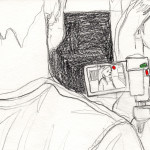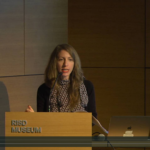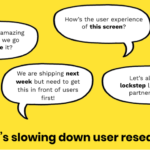
by CARRIE YURY, BeyondCurious
Critical thinkers that we are, researchers are skeptical of buzzwords, one-size-fits all methodologies, and facile business trends. We scowl as ‘ethnography’ is invoked just because someone actually talked with a customer. We say things like, “If you want to be Agile, try yoga.” Even so, we remain deeply committed to the core value of these approaches when they’re done right.
At BeyondCurious, we practice Agile Research. Why did we adapt our research practice to Agile? We did it because we had to. BeyondCurious is an innovation agency that specializes in mobile experiences for enterprise clients. Mobile moves incredibly fast. In order to be an effective, viable, and integral part of BeyondCurious’ mobile design and development process, research has to be done in sync with the rest of the team. And the rest of the team, from strategy and design to development, works in two week, agile sprints.
It wasn’t easy, but we’ve adapted our research methods—from ethnography to UX research—to...







